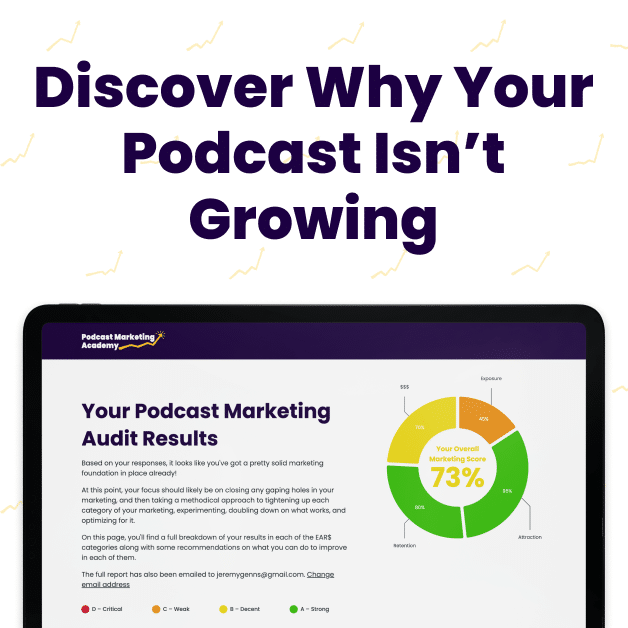Imagine ten of your favourite podcasts were put on shuffle mode and you were then played back random 2-minute clips from each of them.
Presented with this small sample, what are the chances that you’d be able to identify each of them?
If they’re truly great shows, the chances are actually pretty good, even if none of those two-minute clips contained any audio from the host(s).
This is because great shows have a unique fingerprint that immediately identifies and differentiates their show from others.
So what creates this fingerprint?
Of course, we can’t ignore the host themself.
Each host has a unique tone and timbre to their voice which is often an easy giveaway, but that’s only a small part of what makes each fingerprint unique.
But great shows can be identified by any number of other variables, such as how the host uses their voice, the inflection and emphasis they impart on words, their word and phrase choice, the questions they ask, and the lines of thought and conversation they pursue.
Then there’s the pacing, both of the interview or presentation itself, as well as the editing.
How is silence used? Is there music or other audio effects and transitions used? How? What do they do to heighten or alter the mood of the content? What do you feel as a listener when listening to an episode of this show?
At first glance, producing a podcast seems like a fairly straightforward process with a limited number of levers to pull and tweak in order to customize your show.
The greats, however, understand and utilize the much larger scope of tools at their disposal to create shows that are immediately recognizable, creating their own unique fingerprint.
This is true for all great shows regardless of genre, niche, format, or any other variable you can imagine.
It’s especially true for shows with alternating hosts and contributors.
You don’t have to listen to more than a few minutes of This American Life or 99% Invisible to know which show you’re listening to, even if you don’t hear the distinctive voices of Ira Glass or Roman Mars.
Now think of your own show.
If someone were to listen to a random 2-minute section of your podcast, what are the factors that would be immediately apparent? Would it be clear that it was yours? How many of the levers at your disposal are you using to shape your show?
These levers, when used thoughtfully and intentionally have the potential create something unique, something that stands out and sticks in listeners’ minds.
More often than not, however, they go unused. In many cases, indie podcasters are unaware of their very existence.
If you want to create a show worth talking about, however, a show that is marketable, you need to familiarize yourself with the tools available to you as a podcaster, and use them to craft a show that has your fingerprint all over every episode.
From the first minute, to the final, and every one in between.





